
THE VOICE OF INTERNATIONAL LITHUANIA
|
VilNews has its own Google archive! Type a word in the above search box to find any article.
You can also follow us on Facebook. We have two different pages. Click to open and join.
|
Archive for June, 2011
Can we trust Lithuanian media?
- Posted by - (5) Comment

"Lithuania's corrupt media hurts everyone," says a 2007 report from the U.S. Embassy in Vilnius, published by WikiLeaks.
Norwegian Aftenposten tells this week that Lithuania, Bulgaria, Mexico and the Philippines are among the countries where one most easily can buy journalists and editors.
The newspaper refers to a four year old report from the U.S. Embassy in Vilnius, published by WikiLeaks. The report presents a very discouraging picture of the way the Lithuanian media works, and gives concrete examples of how politicians and businesses must pay local media to avoid negative publicity.
Click here to read the WikiLeaks document.
Worse after the financial crisis
"You must buy the right not to be attacked," Vilius Kavaliauskas, long-time journalist and former advisor to the Lithuanian Prime Minister is quoted saying to the Embassy people.
Kavaliauskas, who now works as a freelance journalist, tells Aftenposten that the financial crisis has exacerbated the ethical standards among media in Lithuania.
"It has not become any better since 2007. Many editors and journalists sell and monopolize news and opinions, and there are always questionable political alliances between the media and people in power. Two years ago the media in Lithuania lost its tax exemption. Now they pay 21 percent tax as all other businesses. This has increased the culture of corruption, and is a disaster for our country, "he says.
According to Kavaliauskas the new press laws that were introduced in the middle of the 1990s were inspired by the laws of the Scandinavian countries. "We were on good way, but now we see a total setback," he says.
Pfizer declined 'deal' with Respublika
The embassy document from 2007, which is titled "Lithuania's corrupt media harm everyone, including U.S. industry," says the local director of Pfizer's office in Vilnius, explaining in detail how he was contacted by the owner of the large newspaper Respublika, which offered to "kill" the pharmaceutical manufacturer's competitors in Lithuania.
The price would be one million litas ($ 400,000), and the director was given two weeks' time to respond, it says. When the two weeks had passed, he was again contacted by the newspaper's advertising people, but the director rejected the collaboration.
Shortly after, Respublika started to publish a series of negative articles about Pfizer, which among other things, claimed that several had died from using Viagra, that Pfizer was charging too much for their products, taking advantage of poor hospital patients and sick people.
Discontent over the price difference
The WikiLeaks document published by Aftenposten, also tells about a representative of the Lithuania's Labour Party who claimed that placing a positive article about him in the leading newspaper Lietuvos Rytas would cost 25,000 litas ($ 10,000), whereas a representative of the Social Democrat party would have to pay only 5,000 litas ($ 2,000).
"He was not complaining about paying for an article - he accepted that as common practice. He was complaining that his party had to pay more than another party," is the laconic comment in the embassy message.
Worst in Mexico and the Philippines
-Corruption in the media is common in Eastern Europe, Asia, Africa and Latin America, but absolute worst is now in Mexico and the Philippines, "says Eva Stabell, director of the International Federation of Journalists (IFJ) and responsible for the Norwegian Journalist Team's international work to Aftenposten.
"In these two countries there is a total corruption culture among journalists, incorporated as a part of their payments," she says.
In both countries have a large number of journalists have been killed in recent years.
"Many journalists are on the payroll of the mafia, " she says.
- Bookmark :
- Digg
- del.icio.us
- Stumbleupon
- Redit it
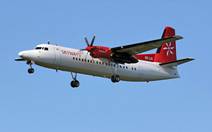
As the summer flight season is gaining momentum, Vilnius Airport can today welcome the Swedish airline Skyways.
From 7 June Skyways will operate flights to two European capitals – Stockholm and Berlin.
Swedish flights from Vilnius to Stockholm Arlanda Airport are scheduled every business day. Time of departure from Vilnius – 6:50; time of arrival to Vilnius – 10:10.
Skyways will also open flights from Vilnius to Berlin Tegel Airport – on a daily basis, except for Saturdays. Departure from Vilnius – 14:45; arrival to Vilnius – 18:20.
“ This summer Vilnius will have especially good connections to Germany: apart from new flights to Berlin opened by Skyways, Lufthansa will operate flights to Frankfurt, Ryanair will fly to Bremen and Wizz Air will launch new flights to Dortmund from the end of July,” says Tomas Vaišvila, General Manager of Vilnius International Airport.
Skyways flights will be operated by an Embraer 145 jet airplane with 48 seats.
This summer Vilnius Airport will service 600 flights per week. Sixteen airlines will operate regular flights from Vilnius to 29 European airports.
- Bookmark :
- Digg
- del.icio.us
- Stumbleupon
- Redit it

June 06, 2011, Invest Lithuania
Ryanair, which operates more than 1,500 flights per day from 44 bases and 1200+ low fare routes across 27 countries, is considering opening a Maintenance Repair and Overhaul (MRO) facility in Kaunas, Lithuania, to support its fleet maintenance requirements. The facility would be at Kaunas airport and would manage a range of aircraft checks and maintenance.
On 22nd June Ryanair is organizing a Recruitment Day in Kaunas and is expecting to meet potential candidates – mechanics, engineers, management and clerical staff - to form the local personnel team to work in Ryanair’s new MRO facility.
- Bookmark :
- Digg
- del.icio.us
- Stumbleupon
- Redit it
New biotechnological and R&D centre in Vilnius
- Posted by - (0) Comment
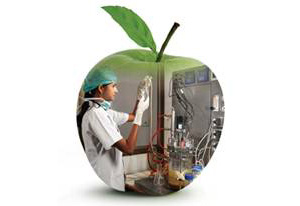
June 06, 2011, Invest Lithuania
In the integrated science, studies and business centre the Santara Valley, located in the capital of Lithuania, a new biotechnological and R&D center and the biopharmaceutical product development laboratory are arising.
The biopharmaceutical company Biotechpharma, developing the new centre in the Santara Valley, is expecting to complete the project in a year. Investments should reach EUR 16.2 million, and part of it – EUR 11 million will come from the EU Structural Funds.
The new Biotechpharma R&D center will be equipped with a modern biopharmaceutical product development laboratory and will supplement the company’s research division. The center will be able to do more outsourcing: to develop not only pharmaceutical production technologies, but also new experimental drugs suitable for clinical research.
According to Biotechpharma, the state-of-the-art infrastructure, complying with the highest international requirements, will create the best conditions for Lithuanian scientists to develop and improve their qualifications. Currently, the laboratory employs 14 scientists who specialize in the biopharmaceutical, biochemical, genetic engineering and other fields. It is expected to create about 30 more jobs.
Biotechpharma is the only outsourcing biopharmaceutical scientific research and experimental development supplier in Central and Eastern Europe. In this region individual biopharmaceutical R&D services are provided by small research consultancy firms and some institutes, but the closest R&D centers, where there is ability to develop complex production technologies, are only in Western Europe and the United States.
Biotechpharma is settling down in the Santara Valley and joining other biopharmaceutical companies such as UAB Sicor Biotech Ltd., Valentis, Moog Medical Devices etc.
According to experts, share of biotechnologies in the Lithuanian economy is very similar to that in Germany, Great Britain or France.
In addition to the Santara Valley, 4 other integrated science, studies and business valleys are under construction in Lithuania: the Sunrise Valley in Vilnius, the Santaka and Nemunas Valleys in Kaunas, and the Baltic (Maritime) Valley in Klaipeda.
- Bookmark :
- Digg
- del.icio.us
- Stumbleupon
- Redit it
The Sunrise and Santara Valleys in Vilnius
- Posted by - (0) Comment
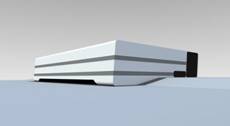
The “Sunrise Valley” and “Santara Valley” programmes, initiated by Vilnius University, are going to change the structure of the University itself and will stimulate a breakthrough in research development and research commercialization. These integrated centers of research, education and business are in development. This is a guarantee for Vilnius University to position itself in European and global research and education, uniting universities, research institutes, top-level high-tech companies and fast-developing start-ups. The first building of Sunrise Valley Science and Technology Park with Business Incubator has opened already, the next one – The National Open Access Science Information and Communication Centre is soon to be built. The Sunrise Valley STP provides high quality sites and premises suitable for technology-driven businesses and promotes networking between the universities and businesses, between the businesses themselves, and with partners elsewhere in Lithuania and worldwide.
- Bookmark :
- Digg
- del.icio.us
- Stumbleupon
- Redit it
COMMENT: Why would Lithuania’s ex-premier help build a new nuclear power plant in Russia?
- Posted by - (0) Comment
![]()
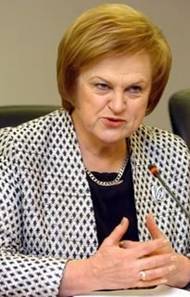
Kazimira Prunskiene
MOSCOW – To a casual observer, Lithuania’s former prime minister Kazimira Prunskiene might seem to be aiming to forge good-neighbourly relations with Russia. In point of fact, this is nothing but a ploy to be able to tap into the funds allocated for the construction of Russia’s Baltic Nuclear Power Plant in Kaliningrad Region.
At the end of May, Prunskiene – currently the leader of Lithuania’s agrarian centre-left party, the Lithuanian Peasant Popular Union, and formerly, this small Baltic republic’s prime minister in 1990 and 1991, was on a visit to Russia’s westernmost enclave of Kaliningrad. The agenda of this trip also included a visit to the site of the Baltic Nuclear Power Plant (NPP), now under construction. During a meeting with Kaliningrad Governor Nikolai Tsukanov, Prunskiene talked about the “necessity” for Lithuania to participate in the construction and operation of the future plant. As she said after the conversation with the governor, she had had the opportunity, while being led around the site, to ascertain for herself the “potential, reliability, and safety of the station.” The interesting fact about this station is that at this point, it presents nothing more than a huge pit awaiting to be filled with concrete for a future foundation. An assessment of reliability of a new nuclear power plant based on a tour around a big empty pit must indeed be a completely novel and unique method in the history of NPP safety evaluations.
What is this new Russian site exactly? The Baltic NPP is being built in Neman in Kaliningrad Region, a small patch of Russian land wedged between the European Union nations of Poland and Lithuania, on the southwest and northeast, respectively, and the Baltic Sea on the west. To the southeast beyond Lithuania is another former Soviet republic, Belarus, and further to the east, the vast expanses of mainland Russia. The two-unit 2.3-gigawatt nuclear power plant built to an experimental Russian design will thus end up being in the very backyard of the European Union, close to the Lithuanian capital, Vilnius, and also one tip of an ominous triangle – Belarus’s project in Ostrovets and Lithuania’s own tentatively planned new NPP in Visaginas being the other two – that environmentalists fear will lock the Baltic region into a desperate nuclear chokehold.
Curiously, the Baltic NPP is also a first Russian NPP project that Moscow has made open to participation by foreign investors – 51 percent of the capital funding is to be provided by the Russian state nuclear corporation Rosatom, while the rest is expected to flow from private coffers based abroad. And the only reason this station is being built is to export the future power output to the European Union – rather than meet the local demand – something that is well confirmed by documents from the Russian electric power trader Inter RAO, which has been charged with finding a European investor for the project.
Read more at: http://www.bellona.org/articles/articles_2011/lith_moscow
- Bookmark :
- Digg
- del.icio.us
- Stumbleupon
- Redit it

Lithuania was very pleased and grateful when Norwegian Telecom installed a satellite telephone station in the Lithuanian parliament, making it possible for Landsbergis to stay in touch with the world when the Soviets re-invaded Lithuania in 1991. But the country did little to hold on to Telenor and other Western investors. "We don’t need you," said former president Brazauskas.
Aage Myhre, Editor-in-Chief
To attract more foreign investors is often held up as a good way for Lithuania to follow – in order to achieve a more viable development, raise living standards and develop a more democratic, less corrupt society.
I began my personal efforts to assist Lithuania exactly 21 years ago, when Parliament President Vytautas Landsbergis announced that he would come to Oslo, on his first so-called official visit to a western country. I and a handful of others were ahead of his visit contacted by a presidential advisor and asked to put the best possible conditions for Landsbergis' visit to my home country Norway. That was how my long relationship to and with Lithuania started...
Landsbergis’ visit to Oslo became a great success and our group was therefore soon thereafter invited to visit Lithuania.
One thing that we put the most of emphasis on, already when Landsbergis was in Oslo the summer of 1990 and during our group’s initial visits to Lithuania, was to invite serious Western investors here.
Already during my very first visit here, in November 1990, we brought with us a representative of the governmental Norwegian oil company STATOIL, introducing the company to the Baltic States.
Just two years later STATOIL began developing the now well-known network of petrol stations across the Baltics and Poland. Our main contribution to STATOIL that time was to introduce them to representatives of governments, organizations and individuals we thought might be of help. The last substantial roles I had for the company was as an architect and facilitator of their offices here in Vilnius in the early 1990's, and to advise them when they later met on corruption and other problems.
During my first visit to Vilnius I also negotiated a contract with Lithuania's communications minister, based on an agreement I had with the Norwegian Telecommunications Administration to provide a satellite telephone station as a gift to Lithuania, and to install it in the parliament here, Parliament President Vytautas Landsbergis had asked our group of ' Lithuania-helpers' about this support when he was on a visit to Norway the summer of 1990.
Not long after this satellite telephone system turned out as very useful when Soviet troops re-invaded the Baltic States and cut all other calling options with foreign countries.
As a 'thank you for your help' the Norwegian Telecom was offered to create the first network for mobile phones here, but they rejected because they thought the market here was too small. They were also very tired of the treatments they were given by local bureaucrats.
I remember that this deeply disappointed me and Telecom's export director, who I worked closely with for the above mentioned satellite station in 1990-1991, and later on when we both tried to position the Norwegian company in the Baltics.
During the years that followed, I invited and tried to set stage for a number of Western investors. Some of them accepted, and some are still in full operation and business here today, very successfully!
What I quickly discovered, already two decades ago, was the importance of having a good personal contact with representatives of those companies, speaking ‘their language’ and to help them with many different problems and challenges in this misguided country where Soviet laws, structures and modes of action was still largely in force, and corruption a very widespread phenomenon.
I also understood that it was very important to offer ‘concepts’ not just ‘projects’ and investment objects to new investors.
Unfortunately, I seldom saw true understanding and interest from the Lithuanian authorities during those years. Even the largest and most serious firms were most often met with a shrug. "What's in it for me personally," was the question that was often presented when we contacted representatives of local authorities and businesses.
I will never forget when I in 1995 had lunch with Chicago’s largest builder, in the Neringa Restaurant here in Gedimino Avenue, a Lithuanian-American who had returned to Lithuania four years earlier, full of optimism and dreams of a restored home country. The day he left he told me: “Aage, let me tell you frankly that they have all cheated me. I invested into business, production, a hotel and more. But they all cheated me – from the highest of politicians to the simplest of workers. I am sick and tired of seeing how these people have ruined my homeland, and I’m now leaving it all behind. I will never again put foot on the soil of the country I dreamed of and supported for all my lifetime.”
I will also never forget that Lithuania's president and leader through much of the 1980s and 1990s, Algirdas Brazauskas, by then made it clear that Lithuania did not need foreign investments.
"We have enough money in this country, among our own investors and companies. We simply need no foreigners here," he said…
One could perhaps have thought that today's leaders would had learned, but the fact is that neither expatriates living here nor people within the country’s own diasporas around the world are much asked for help, advice or contributions. And when the authorities ask, they often ask the wrong people and institutions.
Let me, finally, also share with you a passage from Steven Levy’s book “How Google Thinks, Works and Shapes Our Lives”.
President Brazauskas' attitude and the following description explains a lot about why both and Lithuania are still living in a European backwater. Another sad example of how little the leaders of these two countries understood by then – and very often also today...
Here’s what Steven Levy writes:
“Google also made a priority to build centers overseas. Not long after she found the location in Atlanta, Cathy Gordon went to Europe, where Google wanted to build a giant data center similar to the one in the United States. Google had studied the laws and business practices of every country and narrowed the field to a few that might be able to provide the power and water required, as well as a friendly governmental hand. Some of the proposed locations were predictable – Switzerland, Belgium, France – but a couple were not.
One of those were Latvia, which Gordon had never visited before. The Google team flew into a ramshackle little airport and met the economic development committee, a cadre of what seemed to be stereotypical Soviet bureaucrats. Their host escorted them to the potential data centre site, an abandoned Soviet minibus factory. The building was cavernous and gloomy. In the centre of the building was a giant pit, and Gordon could not help but wonder whether any bodies were quietly decomposing in the stew. The group went to the area where the power facilities were located, and it looked to Gordon like they were on an old horror movie set, a ‘Gulag Archipelago’ version of Dr. Frankenstein’s lab. One of the hosts leaned over and spoke in a confidential whisper, heavy with Slavic accent. “Don’t go to near those things,” he said. “Basically we don’t know if they could kill you.”
“We eventually ended up doing a deal in Belgium,” says Gordon.
- Bookmark :
- Digg
- del.icio.us
- Stumbleupon
- Redit it
RE: Lithuanian health system, doctors and hospitals that has caused my greatest disillusionment with Lithuania
- Posted by - (0) Comment

Dear Gintautas:
This is not the “Lithuanian” health system but the legacy of the Soviet/communist system!
To provide evidence of much broader applicability of your very sad experience, I will briefly describe the tragic case of my Mother dying in a small town in Poland in 2003.
My Mother had a sudden cardiovascular event; an ambulance was called and it took that ambulance about two hours to arrive from a hospital located 25 km away; soon we realized why it took so long!
Some 6 people (sic!) arrived in that ambulance and all of them were under the visible influence of alcohol, the most intoxicated were the most important people in the ambulance: doctor and driver.
The crew eventually managed to put my Mother on the stretcher but one of the drunken bearers collapsed while carrying my Mother, almost dropping her on the ground! Then the ambulance drove off very slowly driven by a drunken driver. After spending several hours in hospital, my Mother passed away.
Rushed from Canada (I visited my Parents very frequently), I had seen my Mother just a couple of weeks before that fatal cardiovascular event. At that time she was in the same hospital with some 9 older patients in the same one room. The food served there was awful, so we used to bring our own food. I did not pursue any further actions to improve my Mother’s wellbeing there because she was about to be discharged home soon.
Immediately after my Mother’s funeral I did a bit of investigation into the (very new) possibilities of suing the hospital for malpractice and the criminal behavior (intoxication of the ambulance crew).
All my relatives and friends were strongly against any action against the hospital for fear of retaliation, e.g. poisoning when they find themselves in the hospital. They scolded me: “you will leave for Canada but we have to live here”. I conceded.
In the postwar period, my Mother was involved with the Anti-Communist Underground fighting for freedom of both Poland and Lithuania: “Za Wolnosc Wasza i Nasza”, Polish for “For Freedom of Yours and Ours”.
Gintautas, what you described was not the “Lithuanian” health system but the legacy of the Soviet/communist system!
Valdas Samonis
Toronto
- Bookmark :
- Digg
- del.icio.us
- Stumbleupon
- Redit it
![]()
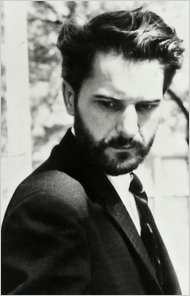
Adolfas Mekas, a Lithuanian immigrant who became an influential avant-garde filmmaker and teacher and who, with his brother Jonas, founded Film Culture, the seminal journal for cinéastes, died on Tuesday in Poughkeepsie, N.Y. He was 85.
The cause was heart failure, his wife, Pola Chapelle, said.
Though Jonas Mekas, a prolific director and avant-garde film archivist, became the better-known sibling, Adolfas Mekas made a handful of films that endure as avant-garde landmarks. The best known of them, “Hallelujah the Hills,” a comedy that spoofed movie history in telling an elliptical tale about two young men and their slapstick pursuit of the same girl, was among the critical and popular hits of the inaugural New York Film Festival in 1963.
“Hallelujah” was praised at the festival alongside films by Alain Resnais (“Muriel”), Roman Polanski (“Knife in the Water”), Luis Buñuel (“The Exterminating Angel”) and Joseph Losey (“The Servant”).
Source, New York Times:
http://www.nytimes.com/2011/06/03/movies/adolfas-mekas-avant-garde-filmmaker-and-teacher-is-dead-at-85.html
- Bookmark :
- Digg
- del.icio.us
- Stumbleupon
- Redit it
I understand that I will be unlikely to see much of an improvement in my lifetime, and therefore I will not be able to end my days in Lithuania, as I had hoped
- Posted by - (0) Comment

Gintautas Kaminskas
Wollongong, Australia
Below some extracts from an article written by Gintautas Kaminskas in Australia, based on his only attempt to live in Lithuania, a couple of years ago. You will find his complete article here:
https://vilnews.com/?p=4748
- At first it was wonderful being in Lithuania and speaking my beloved native language all the time, with everyone. But then I started to notice how unhappy so many people are, and how much dishonesty there is among crooked businessmen and tradesman and landlords who don’t pay taxes, bribe-taking public servants, policemen and doctors, people falsely claiming invalid pensions, etc. At a higher level some major scandals have shown that even some judges and Cabinet Ministers are not beyond taking a bribe.
The Seimas members are notorious for their greed and many have been exposed as corrupt.
It is mainly my experience with the Lithuanian health system, doctors and hospitals that has caused my greatest disillusionment with Lithuania and has in fact made me too frightened to live there myself. We could not leave my dad alone in hospital. We had to be with him 24 hours a day. We had to bring him food (you would die of malnutrition if you depended entirely on the inadequate meals the hospital gives you), we had to be there to bribe the doctor every few days (the amount of attention they paid to my dad dropped off noticeably if a new bribe was not received every few days), we had to be there to help him go to the toilet and in the end phase to change his nappy, we had to be there to make sure he got his medicine.
The hospitals were disgusting. One single toilet on the whole floor for 50 patients! No toilet seat! No paper! No soap! No fly screens on the windows – in a hospital! No lock on the toilet door – men come in and smoke while you are using the toilet – despite the “No Smoking” signs! No facilities for the patients to have a shower or somehow wash themselves. Cold in winter and hot in summer. Hygiene very dubious. An absolute nightmare and disgrace.
When my dad died we even had to bribe the cemetery officials to get a decent burial site that wasn’t down in the gully where a big puddle forms and the ground goes boggy every spring. (They deliberately offer you the lousy places to make sure they get a bribe.)
So by the end of 2009 I had left Lithuania too, with aching heart. I blame the bribery and corruption entirely on the Russians. If Lithuania had been left alone (preferably right from 1795, not just 1918!) I am sure it would be like Sweden now. There are a lot of hard-working decent folks in Lithuania and my heart bleeds for them.
The only way out of this quagmire that I can see is for journalists and other brave people to campaign against bribery and corruption and to convince the general public to start doing so too.
I am still an idealist, but now, belatedly, also a realist. I understand that I will be unlikely to see much of an improvement in my lifetime, and therefore I will not be able to end my days in Lithuania, as I had hoped. But the flame of hope burns brightly in my heart that the past sacrifices of brave Lithuanians for the homeland have not been in vain and that one day there will be a living standard in Lithuania not far behind that of the Scandinavian and leading Western European countries. I hope I can make some contribution to the process, no matter how minor.
- Bookmark :
- Digg
- del.icio.us
- Stumbleupon
- Redit it
Thanks for your brave and honest articles
- Posted by - (1) Comment
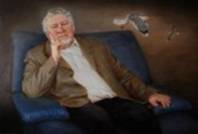
I agree 100 % with you about the thesis you wrote in this issue of the journal. Things in reality are exactly as you clearly and straight have written. The reason why you often get critics is the limited knowledge of short-term "visitors", such as business consultants, diplomat crops, coming here for some years and then trying to make a picture from official Lithuanian sources or lousy press articles. I think especially you and partly me (14th year passing here) with our good touch with local population, business-life, some understanding of language and Scandinavian background, values, are looking around without coloured spectacles. Still, almost every day on, with one's private and business life meet corruption, centralization of business (Rubikon, VP etc) and pre-agreed tenders, cartels.
Lithuania has got a lot of very good opportunities to become one of the success stories in Europe for agriculture, tourism, IT services, leading harbour country by the Baltic Sea etc. but the style must be changed as you say. Thanks, Aage, for your brave and honest articles earlier, now and in the future.
Krister Kastren,
Consul of Finland in Klaipeda, Lithuania
- Bookmark :
- Digg
- del.icio.us
- Stumbleupon
- Redit it
Fraud and corruption in Lithuania
- Posted by - (1) Comment

VilNews will frequently follow what goes on with regard to fraud and corruption in Lithuania. The statistics do not look particularly bright, and it seems that people`s perception of the circumstances with regards to fraud and corruption is not getting more optimistic over the years - rather the contrary.
In a recent survey people were asked how they think the level of corruption in this country has changed over the last three years. Here is what they answered:
8% - decreased
29% - stayed the same
63% - increased
Another question was: How would you assess your current government`s actions in the fight against corruption?
78% - ineffective
16% - neither
6% - effective
- Bookmark :
- Digg
- del.icio.us
- Stumbleupon
- Redit it
![]()
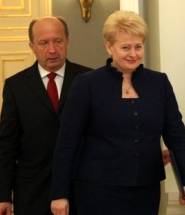
President Dalia Grybauskaite, soon two years in office, here with Prime Minister Andrius Kubilius.
"After the first year [as president], I slightly changed my approach to work. During the first year, we tried to help the Government, while, as the second year's task that I set for myself and my team was trying not only to help out the Government, but also initiating many legislative proposals on our own, especially, when it comes to fighting corruption and collusions on prices, making public procurement more transparent, legalizing extended confiscation of property, increasing penalties, introducing of terms in public offices, especially in law enforcement institutions," Grybauskaite said in an interview with the radio Ziniu Radijas this week.
The result of the new approach is the double amount of legislative drafts that reached the Seimas from the Presidential Palace. "Compared to previous year with 34 laws adopted, during the second year, we proposed 66 of them. I am glad that almost 75% of all initiatives enjoyed support. (...) I am also happy that the Seimas approved almost all of my proposals, with some small corrections only. I am glad because this shows that the Seimas and I understand each other," Grybauskaite said. The president will read her second annual report after a week.
Among the main achievements for the country under her leadership, the President named the NATO defence plans for the Baltic States, and the EU decision that by 2015 the Baltic States would be integrated into the European energy space, thus eliminating our energy isolation.
"We also received support for our idea of stricter requirements for nuclear power companies and especially for new constructions that are taking place next to the EU, that is, next to Lithuania. The idea was that new yet to be built nuclear power plants would be subject to very strict safety requirements, as well as stress-tests would be ran on them," Grybauskaite said.
The president was happy about the support for electricity and gas exchanges which to be formed. "Both energy and defence were extremely important priorities in foreign policy, they meet the interests of Lithuania and every citizen, they provide us with a development opportunity, coming out of difficult economic situation and having sufficient security so that we would develop the country for the good of people," Grybauskaite stressed.
Source: http://www.baltic-course.com
- Bookmark :
- Digg
- del.icio.us
- Stumbleupon
- Redit it
![]()

The government should restore pensions as planned to levels last reached before the global financial crisis and raise the minimum wage in 2012 as the economy expands, Grybauskaite said to another radio station, Lieutvos Radijas, last week.
The IMF estimates that the pension increase will boost spending by 0.6 percent of GDP. The government said today it plans to keep a freeze on public workers’ salaries next year after an 8 percent cut in 2009. The economy expanded 6.9 percent in the first quarter.
Grybauskaite told the government to resist turning the 2012 budget plan into a pre-election spending campaign.
- Bookmark :
- Digg
- del.icio.us
- Stumbleupon
- Redit it
Lithuania is the most attractive country for international companies looking to invest in the region of the Baltic States, the latest 2011 European Attractiveness survey from Ernst & Young shows
- Posted by - (0) Comment
![]()
“The number of projects has increased from 33 to 61 with Lithuania leading the region, with 31 project announcements. Investors come to the Baltics to invest in air transportation (25 %), financial services (12 %) and utilities (10 %). These countries are re-emerging as lower cost near-shoring locations with a quality workforce on the doorstep of Western Europe,” the survey reveals.
Ernst & Young’s 2011 European Attractiveness survey reflects Europe's real attractiveness for foreign direct investors, based on Ernst & Young's European Investment Monitor (EIM), as well as attractiveness of Europe and its competitors evaluated by a representative panel of 812 international decision-makers.
Follow to download 2011 European Attractiveness survey here.
- Bookmark :
- Digg
- del.icio.us
- Stumbleupon
- Redit it

Ambassador Antanas Valionis called Latvian President Valdis Zatlers "villainous" and questioned his motives for trying to disband the Latvian assembly
Lithuania's ambassador to neighbouring Latvia is resigning following comments he made attacking the Latvian president's move to dissolve Parliament.
In an interview with Latvian news site delfi.lv, Ambassador Antanas Valionis called President Valdis Zatlers "villainous" and questioned his motives for trying to disband the Latvian assembly.
Zatlers said over the weekend new elections were needed to weed out a culture of corruption among lawmakers.
Baltic news agency BNS reported Valionis announced his resignation Tuesday after a meeting with Lithuanian President Dalia Grybauskaite, saying: "I apologize to the Latvian president who was insulted by my words. Therefore, I think I should not continue working in Latvia."
Source: The Associated Press
- Bookmark :
- Digg
- del.icio.us
- Stumbleupon
- Redit it
VilNews e-magazine is published in Vilnius, Lithuania. Editor-in-Chief: Mr. Aage Myhre. Inquires to the editors: editor@VilNews.com.
Code of Ethics: See Section 2 – about VilNews. VilNews is not responsible for content on external links/web pages.
HOW TO ADVERTISE IN VILNEWS.
All content is copyrighted © 2011. UAB ‘VilNews’.

 Click on the buttons to open and read each of VilNews' 18 sub-sections
Click on the buttons to open and read each of VilNews' 18 sub-sections 















.jpg)



